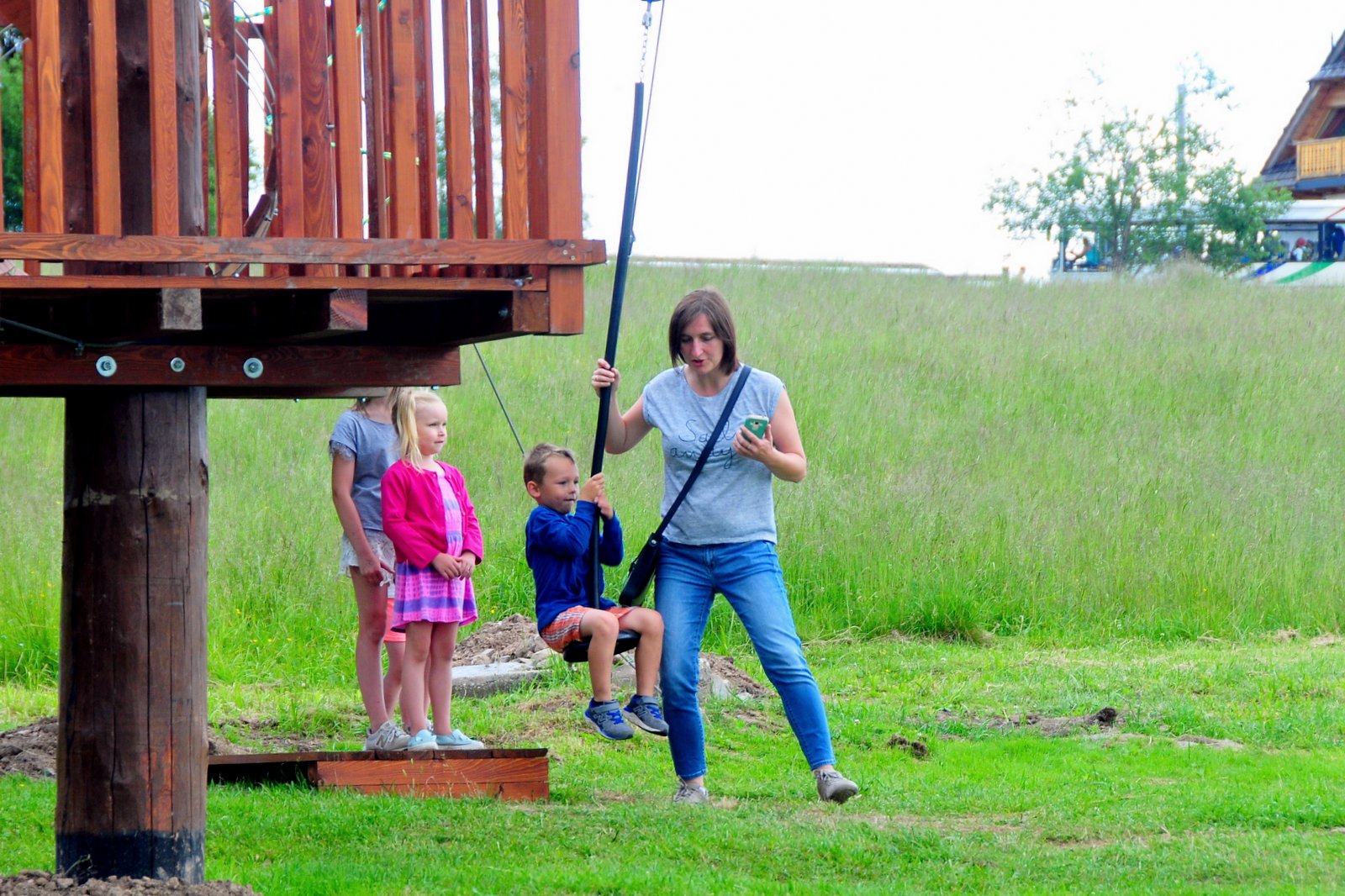“I did give up.”
The Girl was upset with ourself for not having completed the line course she had begged — absolutely begged — to complete. The longest. The most challenging.
K tried to talk her out of it, and the whole time the Girl was on the course, she was like this:

Of course there was no real risk: tourists are secured at all times on a security line with not one but two safety ropes. Still, both the Girl and her mother were somewhat frightened by the whole thing. And then there was the exhaustion: K tried this course some years ago and was unable to complete it. Her arms and hands gave out. She was hesitant to continue after the first obstacle, but went on anyway. L had exactly the same experience. Then came an especially challenging rope section, and K’s arms just gave out. But L kept on going, with much encouragement.

The last two obstacles seemed hardly to be obstacles to me: two long zip lines. And it was there that the Girl just gave out.

Afterward, the conversation: I tried to express how proud I was of her, how proud she should be of herself, that she completed so much of the course.

“You wanted to stop, but you didn’t. You kept going, when you were tired, when you were scared. You didn’t give up.”

“I did give up.”

Can you give up and not give up at the same time? I think so.

Somehow the Girl exposed a truth about giving up and going on. It’s a step-by-step basis. It’s a step-by-step battle. And every step that overcomes fear or exhaustion is itself a victory.


The Boy had his own adventures.




To me, from your retelling of it, she is saying something as important as overcoming fear/exhaustion: “I know my limits.” That’s not exactly the same as giving up.
Ten years ago, while hiking the Canadian Rockies with Ed, I got stuck on a mountainside of scree. I was terrified of losing my footing. I could not go forward. Eventually Ed coaxed me back, but I’ll never forget the terror of being stuck on that mountain. I’ve thought a lot about that moment since and I keep coming back to the same conclusion: I’m glad I was strong enough to say — I can’t do this. Let’s go back.
It seems we’re talking about the same thing from different sides. Effective rephrasing — thanks.